
Is it OK to share our bed, or even plates and bowls, with our pets?
Is a dog's mouth really cleaner than a human's?
Posted in Pet Health on July 3, 2011. Last modified on March 28, 2019. Read disclaimer.
Tips for living safely with house pets
Have you ever adopted an adorable dog or cat and, before you know it, he or she is sleeping in the bed, cleaning off your plates, and showering you with affection? While pets provide us with tremendous health and quality of life benefits, they also have the potential to give us illness-causing germs and parasites.
+ Free Shipping & Returns on Eligible Items.
(*Amazon's Top 100 list updated hourly.)
Here are a few suggestions, courtesy of the Centers for Disease Control and Prevention, for happily and safely living with pets in the house:
Protect your pet and yourself against...
Parasites:
- Because roundworms and hookworms are so common in dogs and cats that most pets should be dewormed regularly (at least once a year). By keeping pets indoors or within a fenced in yard, they are less likely to be exposed to contaminated feces from other animals or carrier rodents, etc.
- Ringworm (the same fungus that causes athletes foot and jock itch) can easily be spread by contact with infected animal skin, bedding, combs, towels, etc. If you know an animal is a carrier, wear gloves when handling. Focus on good hygiene and treat with topical anti-fungal cream. Do not share towels, bedding, etc., Wash infected items with hot water and fungicide or diluted bleach.
- Cat scratch fever is a bacteria that can be spread to humans by a feline bites, scratches or a lick. It may also be passed from cats to humans by ticks and fleas. To protect yourself, clean cat scratches and bites, wash hands after handling kittens and guard against ticks and fleas.
- Toxoplasmosis is a parasite carried by cats and can be communicated to humans when cleaning the litter box. Since it can cause birth defects, pregnant women should avoid this household task.
- Take steps to prevent tick and flea on your pets and in your home and yard.
Bacteria:
- Cat litter boxes should be cleaned daily and dog droppings should be removed from the yard. Since animal feces contain many types of bacteria, some of which can spread illness to humans, pet "poo" should be tightly sealed in a plastic bag and disposed of properly. Cats should never be allowed to defecate in sandboxes or children's play areas.
- Handle and store pet foods properly. Dry pet foods and treats have been connected in recent years with numerous salmonella outbreaks. Pet foods should be stored away from human food in the original bag and sealed inside a plastic container. Keep in a dry, cool location (under 80 degrees). Unused wet food should be refrigerated promptly or discarded.
- Keep pet food bowls clean. They should be washed with soap and hot water away from the kitchen sink where cross-contamination may occur. Use a dedicated scooping utensil (do not scoop food directly with the pet feeding bowl).
- Provide fresh water, clean bedding and regular exercise.
- Wash hands after handling pets, pet foods, treats, litter or droppings
Allergens
- Many people are have allergic reactions to the dead skin, urine or saliva of cats or dogs. Symptoms may include sneezing, runny nose, wheezing or difficulty breathing. While medication or avoiding contact with pets may be the only solution for some, others may benefit from high efficiency air filters, keeping pets out of human beds and off furniture, selecting breeds of dogs or cats that are less likely to trigger allergic reactions, daily pet brushing (by someone other than the allergy sufferer), weekly bathing (with a very mild shampoo), and washing hands after pet contact.
- Second-hand poison ivy. Very rarely will pets have any reaction to poison ivy, oak or sumac. Most humans, however, are highly allergic to the urishiol oil these poison plants contain. So, when you pet runs through a patch of poison ivy and you then pet or hold it, you have a good chance of breaking out in a rash. If you believe your pet has been in contact with poison ivy, wash and rinse the animal well. Wash yourself well with soap and cool water within 1 hour of contact to lessen your chances of a reaction.
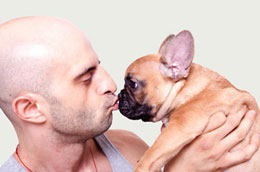 Owning a pet offers us many benefits -- it is believed to help lower our blood pressure and heart rate, minimize stress, encourage us to get more exercise and even create opportunities for us to make more human friends. Just remember, the healthier your pet and better your hygiene, the less chance you have of picking up an illness.
Owning a pet offers us many benefits -- it is believed to help lower our blood pressure and heart rate, minimize stress, encourage us to get more exercise and even create opportunities for us to make more human friends. Just remember, the healthier your pet and better your hygiene, the less chance you have of picking up an illness.
For more information about minimizing the health hazards of living with pets, visit:
http://www.vdh.virginia.gov/epidemiology/DEE/
zoonosesdata/documents/zoonewlettervolume109.pdf
http://www.cdc.gov/Features/HealthyPets/

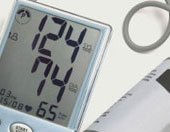 High blood pressure risk factors
High blood pressure risk factors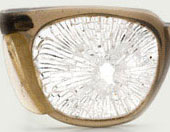 Protecting your eyes and eyesight
Protecting your eyes and eyesight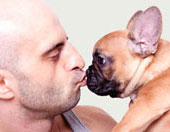 Living safely with house pets
Living safely with house pets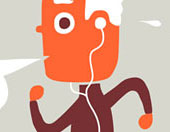 Natural body detox through exercise
Natural body detox through exercise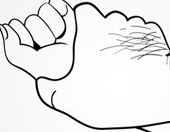 Domestic violence assistance
Domestic violence assistance Important role of grandparents
Important role of grandparents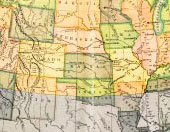 Concerns and risks of Vitamin D deficiency
Concerns and risks of Vitamin D deficiency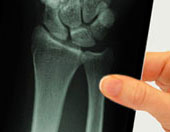 What is carpal tunnel syndrome?
What is carpal tunnel syndrome?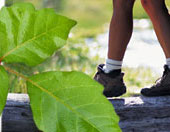 Poison oak, ivy and sumac rash prevention
Poison oak, ivy and sumac rash prevention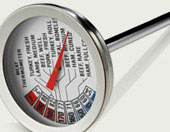 Safety tips for preventing food poisoning
Safety tips for preventing food poisoning